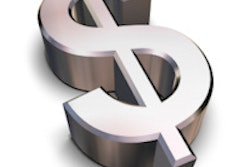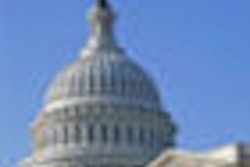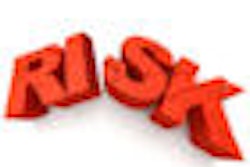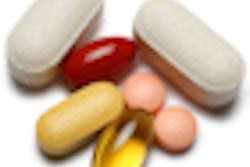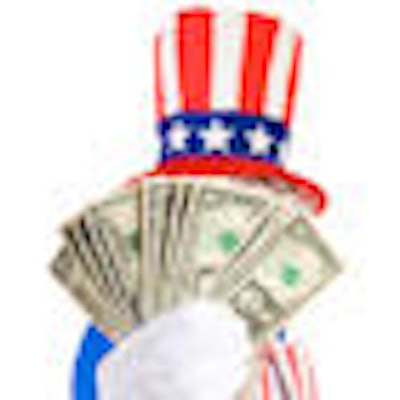
While most products made by U.S. dental labs will not be subject to the new federal medical device excise tax that takes effect on January 1, 2013, sleep apnea devices, snore guards, and most of the materials and components that labs use to make many products or restorations will be subject to the 2.3% tax, according to the National Association of Dental Laboratories (NADL).
In addition, dental labs will likely be forced to pass on the increased costs to their customers, and many products purchased by dentists for use in their practice – such as restorative materials, hand and surgical instruments, and endodontic filling materials -- may be subject to the tax as well.
When the Patient Protection and Affordable Care Act – as amended by the Health Care Education Reconciliation Act, which includes the new tax -- was passed in 2010, the reference to the U.S. Food and Drug Administration's (FDA) broad definition of "medical device" meant that all devices made in dental laboratories would be subject to the tax, said Eric Thorn, in-house counsel for the NADL.
"That definition is so comprehensive that it would have encompassed virtually everything that comes out of a dental laboratory," he told DrBicuspid.com. The NADL represents about 10,000 U.S. dental labs.
But earlier this year, the U.S. Internal Revenue Service (IRS) proposed rules containing a definition of "taxable medical device," clarifying that if a device is required to be listed with the FDA, it will be considered a taxable medical device. However, the majority of dental devices made by domestic dental labs are not required to be listed with the FDA, so they won't be taxable.
On December 5, the IRS released its final rules on the new tax and finalized the definition of "taxable medical device" that was published in the proposed rule.
Some of the items expected to be affected by the tax include nitrous and oxygen delivery systems and gas, computer equipment used for diagnostic purposes, x-ray equipment, sensors, cone-beam CT systems, caries detection devices, handpieces, imaging equipment, and CAD/CAM machines.
Potential financial impact
The new tax is a manufacturer's excise tax, and the manufacturer or importer of such taxable medical devices is responsible for reporting and paying the tax, according to the IRS.
Domestic dental labs are likely to see the device tax impact when they buy materials and equipment from dental manufacturers and suppliers, since most of the raw materials used by labs to make completed dental devices are required to be listed as a device with the FDA.
“Even if dental labs are not making taxable medical devices, the materials they use to make those devices in most cases will be taxable so their costs will be impacted.”
Dental Laboratories
The new tax could have a significant financial effect on dental labs, Thorn said.
"If your profit margin is 10%, absorbing the 2.3% cost of the tax will mean making almost 25% less, so the impact of the Medical Device Tax really needs to be viewed in relation to one's profit margin and not necessarily in relation to the sales price," he said. "The impact is much more significant than it might seem."
Lori Paulson, vice president of marketing for the American Dental Cooperative, agreed that prices will go up when the tax takes effect.
"The majority of manufacturers are passing on the tax as a price increase," she told DrBicuspid.com. "Unfortunately, it will raise the cost of goods in the dental market."
While domestically made crowns, bridges, dentures, veneers, and orthodontic appliances such as retainers will not be subject to the tax at the point of sale from dental labs to dentists, the materials and components used to make many devices will be taxable, according to the NADL. These taxable materials include alloys, ceramic, resins, stock abutments, and individual denture teeth.
Also, sleep apnea devices and snore guards must be listed with the FDA and are therefore taxable, which means the dental laboratories that make them will be subject to quarterly IRS filings, Thorn noted.
Imported restorations made by foreign dental labs (since they are all required to be listed with the FDA) also will be taxable.
What about dentists?
For dentists, the tax appears to apply to equipment, material, and supplies purchased by them, such as restorative materials, hand instruments, surgical instruments, and endodontic filling materials, according to an ADA News article.
The ADA, NADL and other dental organizations had asked that dental devices manufactured by dental labs and orthodontic manufacturers be exempt from the tax, but the IRS rejected the request.
Items that are generally purchased by the public at retail stores for individual use -- such as eyeglasses, contact lenses, and hearing aids -- are exempt from the tax. But many high-dollar items will be subject to the tax, including MRI and x-ray machines, pacemakers, implanted defibrillators, and hip and knee joint replacements.
"It's extremely broad because it covers any products that fall under the FDA classification," Paulson said. "That's a lot of products; it's virtually everything."
Labs have the option of including the new tax in charges to dentists or itemizing it separately on their invoices, the NADL said.
While the tax is formally payable by manufacturers and importers of taxable devices, the effects will be felt by dental labs, dentists, and patients as well, since it will probably be passed on in the form of higher prices.
"If you look at it in terms of its relation to their [dental labs] profit margin, I suspect that more likely than not most labs will feel the need to pass it on because prices have been very flat, and there's really just not a lot of room for most labs to absorb additional costs in this environment," Thorn said. "So the next question becomes: Will the dentists increase the costs to their patients? And it's a very reasonable assumption."




